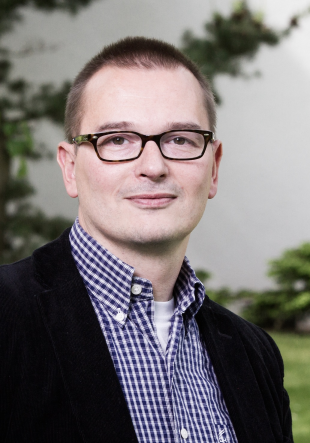YES - Youth Engagement in Society
Overview
YES is an ERASMUS+ project embedded in the 'Strategic Partnerships' action with a focus on young people (Strategic Partnerships for youth). YES is an internationally oriented project in the EU education program with a duration of 12 months, which focuses on and promotes European Citizenship.
The basic idea of implementing the YES European Citizenship project online using a game-based tool was developed at the Chair of Business Education II at the University of Paderborn. The project is coordinated by Terram Pacis from Tromsø, Norway, which, as a youth organization, has direct access to the target group of young people.
Four partner institutions from three countries are cooperating in the project. These are the coordinating institution and youth organization from Norway, Terram Pacis, a youth organization from Italy, TDM 2000 International, and two partners from Germany. These are the technology partner Ingenious Knowledge GmbH and the developer of the overall concept, the Chair of Business Education II at the University of Paderborn. The project language is English.
The system to be developed in YES will be a game-based tool in the form of a text-based online card game designed to promote debates on politics and society among young people. To implement and use this tool, teams will be formed by young people, consisting of school classes or mixed international teams, who will compete against each other in a debating competition on the broad topic of European Citizenship.
The system essentially provides an online environment for debates on social or political issues. A gamification approach is used to encourage young people of different ages to engage in the discussion and on the topic.
The gamification approach of YES is implemented in the sense of a serious game. This is done via a card game mechanism, which is developed as a deck game. The core idea of YES is that the teams have to prepare their own card deck with different statements and align them so that they have their own statements and arguments on their cards and use them to strengthen or defend their own position.
It is therefore a combination of an interactive rule-based debate and a deck of cards that is displayed online.
This makes the whole system very flexible, as there is no limit to the number of teams that can compete against each other, nor really to the number of young people that can join together in a team. The number of players in a team can thus vary, so that there could be only one representative per team or, more sensibly, up to ten players per team.
In order to enable a topic-oriented approach, however, it still makes sense to use basic debating formats, such as the following:
• Discussion duel between two teams against each other
regarding the advantages and disadvantages of a specific topic, such as European vocational training or political institutions in Europe.
• Election simulation with up to five different teams, where the aim is to simulate an election in a kind of split session
• Representative debate: A debate with up to five different teams, each represented by only one person.
Since the teams are connected online via the system, in which they only have to register or log in, it is also not absolutely necessary for the participants of a team to be in the same place. Thus, in theory, teams of young people can also be made up of members from different countries. This communication, which usually takes place in the foreign language English, also promotes language learning to a certain extent.
From a technical point of view, the debating and card-deck tool is hosted as a system on a server. The materials and the tool are being developed in the YES project. An online platform in PHP is being built that uses a MySQL database to ensure a high degree of scalability for the system. To use the system, participants simply need to use a browser and register. There is no need to download software or plugins, as the system is geared towards all modern browsers.
Key Facts
- Grant Number:
- Project type:
- Sonstiger Zweck
- Project duration:
- 09/2015 - 08/2017
- Funded by:
- Europäische Union (EU)
- Website:
-
Webseite

